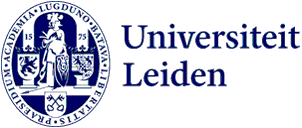
Outreach symposium: ‘We’ve got so much talent and creativity at our university’
As an academic, it’s not easy to communicate your research to society – and in a language people will understand. With its Outreach Grant Symposium, Young Academy Leiden (YAL) wants to support and inspire a new generation of ‘outreachers’.
The days when academic knowledge stayed within the walls of a university are long gone. And that is a good thing, says Rachel Plak, an assistant professor and the chair of the YAL outreach workgroup. ‘Now disinformation is so easily spread on the internet and social media, it’s more important than ever to share knowledge with society. And as an academic, you can learn a lot by not staying in your own bubble but by talking to people outside it as well.’
Podcasts and lectures
This is what outreach is all about: using communication to involve non-academics in academia. ‘It’s about bridging the gap between academia and society,’ Plak explains. ‘This can take various shapes: making vlogs or podcasts, writing blogs, giving lectures, taking part in talk shows and even organising a science festival. The main thing is that expertise and good science always take centre stage.’
Earlier this year, YAL issued a call for outreach grant proposals. The responses flooded in. ‘It was great to see how much talent, creativity and knowledge there is at our university,’ says Plak. ‘In the end, we were able to award five projects a grant.’
Good ideas
YAL is hoping the Outreach Grant Symposium on Friday 25 November will help more young Leiden outreachers. ‘Some speakers are experienced outreachers, our own Leiden product that we’re proud of. But young grantees will also talk about their plans. We hope visitors will be inspired by our speakers and that together they’ll come up with good ideas, that they think: “Oh, so you can do it like that too!”’
There will also be room for the practical challenges outreachers face. It’s definitely not easy to talk or write about complicated topics in a language people will understand, says Plak. ‘That’s a real expertise. It would be great if we could teach young academics these skills at our university.’
Small community
And as is often the case in academia, good outreach ideas sometimes fall by the wayside because of lack of time. ‘It is usually not part of your responsibilities as an academic,’ says Plak. ‘Outreach comes on top of your other tasks, which is why you often have to do it in your own time. Unfortunately, outreach doesn’t have the same status in academia as research and teaching do. It’s not all doom and gloom though! There are more and more good initiatives, like pilot funds and grants. But we’re not there yet. So you’re more than welcome to come to the symposium. We really want to build a small community.’
PhD candidate Jip Barreveld: 'Just go for it!'
In the ‘Middeleeuwse Toestanden’ podcast PhD candidate Jip Barreveld and his colleagues Thijs Porck and Mette Langbroek tackle misconceptions about the Middle Ages. Did everyone die young, for example? Did people only eat meat? Thanks to a YAL outreach grant, there’ll now be a second season.
‘We actually started out with our Leiden Medievalists Blog, but those articles are in English and fairly specialist,’ says Jip. ‘We thought a podcast would be more accessible, with episodes people can listen to when they’re exercising, cooking or out for a walk. We wanted to reach a wider audience and seem to have succeeded. I’ve discovered that my elderly neighbours also like the podcast.
‘As a young academic, sharing your knowledge can be a bit of a challenge. You can post things on Twitter but you won’t immediately reach the general public. My tip for new outreachers: just go for it. You can always hold yourself back with all sorts of its and buts. So if you’ve got a good idea, just try it!’
Outreach officer Sterre van Riel: 'Talk to your target audience'
Sterre van Riel is an outreach officer at BrainTrain, part of the Social Resilience and Safety Interdisciplinary Programme. The team used their YAL outreach grant to develop a learning package to teach secondary school children more about how their brains deal with fake news.
‘It could hardly be more accessible because we literally come to the target group with our BrainTrain lesson,’ says Sterre. ‘And the lesson’s really interactive. We bring virtual reality headsets with us, for instance, so the pupils can experience how easily their brains believe things that aren’t actually there.
‘Researchers know loads about a particular subject, but they don’t have the experience of how it is to be young now. So my tip for outreachers would be: talk to your target audience and ask what they’d like to learn about the research that you do. And don’t feel you have to get it right the first time.’
